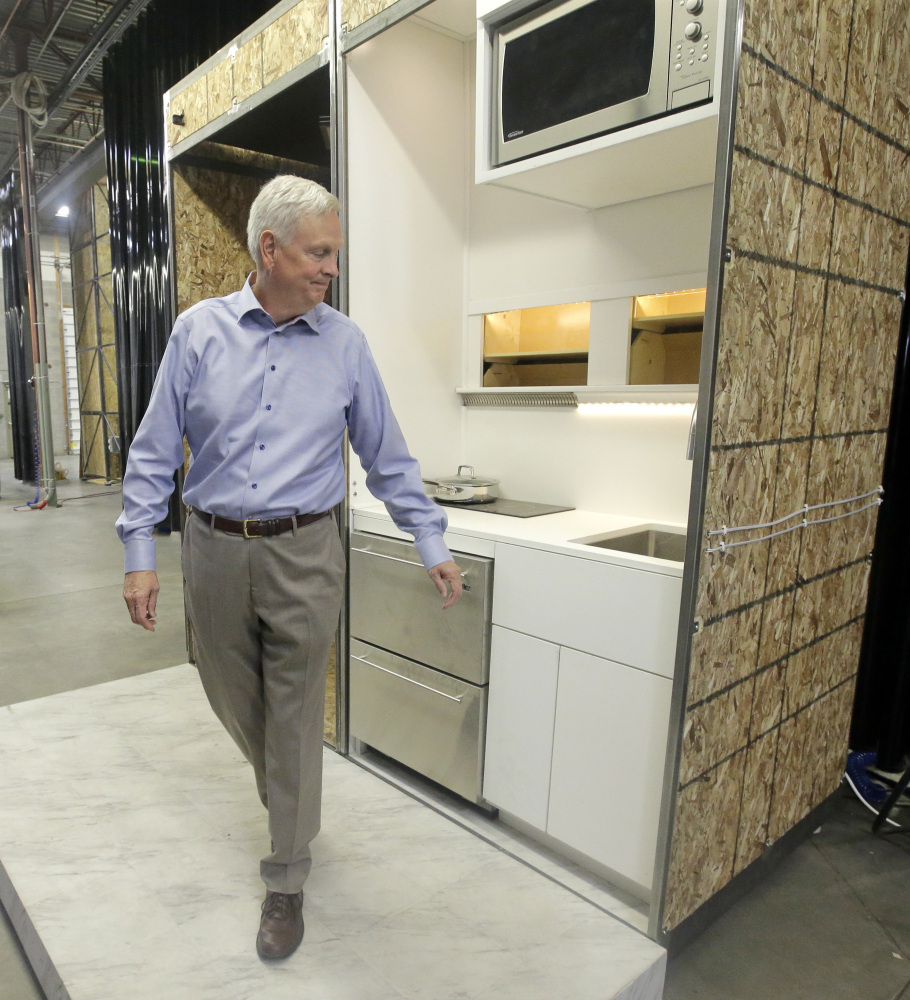SALT LAKE CITY — The utopic communities envisioned by a wealthy Mormon businessman near religious landmarks in Utah and Vermont would feature small homes clustered around community gardens and focus on walkability to reduce the need for cars.
David Hall’s effort to build sustainable communities is years away from reality but took a hit this week when the Mormon church denounced his plans, modeled after church founder Joseph Smith’s vision from 1833. Hall is unfazed, vowing to press ahead with the developments that will welcome non-Mormons and urge people to consume less.
The Church of Jesus Christ of Christ of Latter-day Saints has concerns about the communities affecting existing neighborhoods and the longstanding relationships the religion has with those residents, spokesman Eric Hawkins said in a statement. The project is not associated with the church in any way, he said.
“The church makes no judgment about the scientific, environmental or social merits of the proposed developments,” Hawkins said. “However, for a variety of reasons, we are not in favor of the proposal.”
Hall said he’s not surprised because he believes church leaders are not forward-thinking and worry about their image. Their stance allows him to tout that his communities are not influenced by the church and not designed to be Mormon enclaves, he said.
“I’m not running for office and I’m not trying to be a missionary, so I don’t care what people think,” Hall said. “I’m looking for long-term good.”
And long term it is – Hall’s plans are years away from reaching fruition in Utah and decades in Vermont. But neighbors in both states already have expressed concerns about the communities causing drastic changes.
The Utopia in Vermont plan calls for housing for 20,000 people, offices, gardens, 48 basketball courts and 48 Olympic-size swimming pools. It’s planned near a monument at the birthplace of Smith, the founder and first president of a religion that now counts 15 million members worldwide.
A community near church-owned Brigham Young University and the Missionary Training Center in Provo, south of Salt Lake City, would be much smaller. Hall owns some of the land already.
The project closest to happening is in a neighborhood in south Provo, where Hall has a warehouse and owns many homes. He plans to build a hotel and several hundred houses to test some of his concepts.
Hall’s foundation’s website shows conceptual designs for the communities he envisions. Narrow, three-story homes with rooftop gardens would be built wall to wall around large, community gardens. People could get around by electric public transit. Energy-efficient multi-use buildings would provide space for meetings and business.
He ultimately hopes to create an entire town with 50 diamond-shaped communities of 15,000 to 20,000 people each near an economic hub so residents could walk or take public transportation to work.
Hall said he has committed much of his own money to the venture, spending $100 million on engineering and other research over the last 50 years. He sold a company last year specializing in synthetic diamond technology and is putting most of the proceeds toward engineering studies.
Hall said Mormon officials have reached out to him, but he does not call back. He says he’s in good standing as a church member but does not want faith leaders telling him what to do.
Besides, he believes those who would be interested in his green living effort will be non-Mormons.
“It’s all getting to one-tenth of consumption we’re at now,” Hall said. “That’s not going to go over well with LDS people, because they’re consumers. They’re free enterprise and right wing, that’s what they’re at.”
Send questions/comments to the editors.



Success. Please wait for the page to reload. If the page does not reload within 5 seconds, please refresh the page.
Enter your email and password to access comments.
Hi, to comment on stories you must . This profile is in addition to your subscription and website login.
Already have a commenting profile? .
Invalid username/password.
Please check your email to confirm and complete your registration.
Only subscribers are eligible to post comments. Please subscribe or login first for digital access. Here’s why.
Use the form below to reset your password. When you've submitted your account email, we will send an email with a reset code.